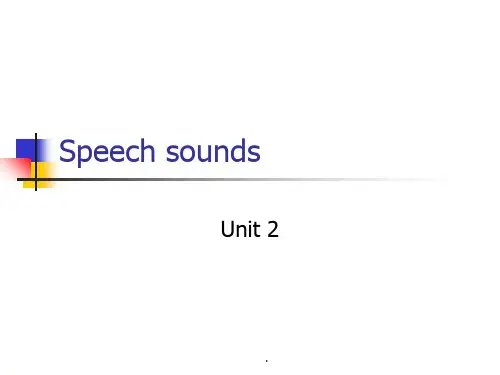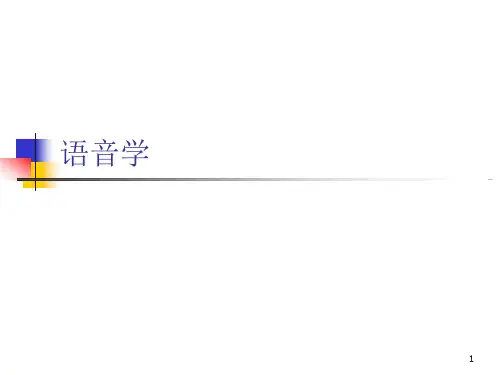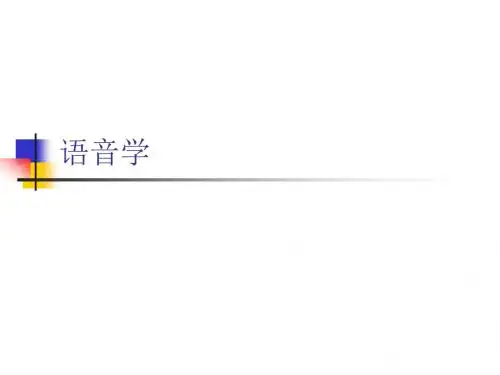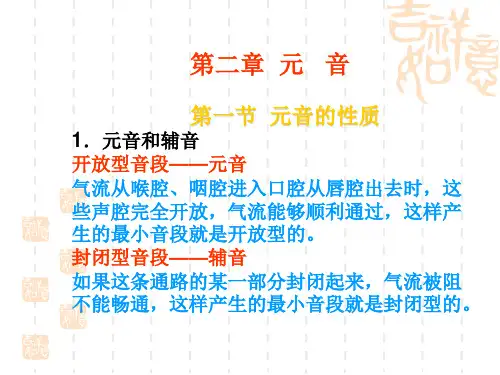to pronounce a correct / ı /, you need to
1) lower you tongue a little bit from the position for /i:/, and 2) make it a lax(松弛的) sound instead of a tense sound like /i:/.
III. The degree of lip rounding - lip posture
5
6
7
8
Four front vowels
There are four front vowels in English: /i:/, /ı/, /e/ and /æ /. The reason these are called front vowels is that the tongue body is shifted forward, causing the vowels to be produced in the front of the mouth.
words.
11
Very little difficulty should be encountered by the Chinese learners in the pronunciation of /i:/, b easy for the
learners to detect the difference in length. What counts here, however, is the difference in quality. It is therefore important to point out the fact that
tension in the root of the tongue, sets it apart from Chinese and many languages









